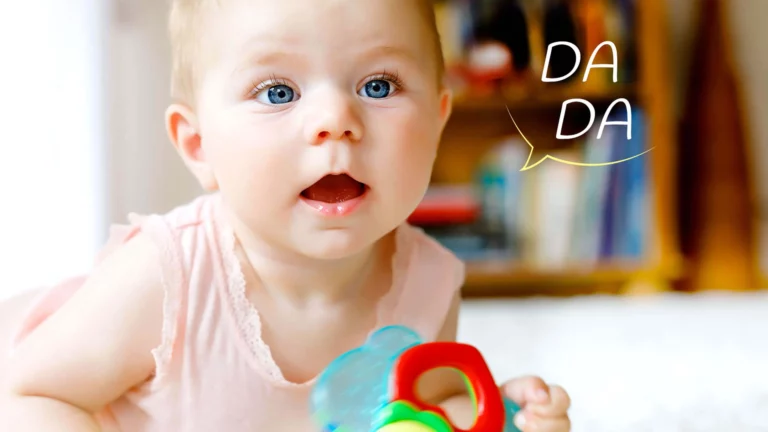The first time you hear that your baby has been diagnosed with a congenital heart disease, you probably believe that your entire world has ended. Fortunately, there have been so many advances in treating congenital heart disease that this diagnosis does not have to mean the end, but just an obstacle in the road that must be overcome, allowing your child to live a full and meaningful life. Now, more than ever, it falls on healthcare providers and foundations to learn how to empower families dealing with heart defects so that these families can understand early on that there is a bright future ahead of them.
In This Article
What Is Congenital Heart Disease?
A congenital heart disease is an illness or defect that is present in the heart’s structure of a newborn infant. These issues may first be detected during pregnancy, usually as soon as the heart begins forming when the mother is about 6 weeks pregnant.
When a heart defect is present, it could result in blood having a hard time circulating through the heart. Various types of defects result in different degrees of severity or in different parts of the heart being affected. About one-quarter of these defects are considered to be critical, requiring surgery or other interventions during the first year of life of the baby. Other defects are mild and can be treated without the need for surgery and still others call for no treatment at all.
Being among the most common birth defects, congenital defects affect about 1% of all babies born in the United States every year, according to figures from the Centers for Disease Control and Prevention (CDC).
Are There Different Types of Congenital Heart Diseases?
These days, the medical community has been able to identify 18 distinctive heart defects and many more anatomic variations. Some of these impact the walls or valves of the heart while others damage the veins or arteries surrounding the heart. Among the most prevalent ones you may find:
- Transposition of the great arteries
- Atrial septal defects (ASD)
- Ventricular septal defect
- Atrioventricular canal defects
- Coarctation of the aorta (CoA)
- Hypoplastic left heart syndrome (HLHS)
- Pulmonary atresia
- Pulmonary stenosis (PS)
- Tetralogy of Fallot
- Total anomalous pulmonary venous connection (TAPVC)
- Tricuspid atresia
- Truncus arteriosus
While some of these are considered to be simple, requiring no treatment, others require surgery. A medical specialist can detect the type of defect that the baby has by conducting special tests. Some may be performed before the baby is born while others are done after the baby’s birth.
Are There Any Symptoms of Congenital Heart Disease?
Symptoms will vary depending on the type of defect that is present. The simplest ones may manifest signs once the child is a bit older and the parents notice them frequently complaining of being tired or getting out of breath during any physical activity.
Other defects, particularly the more severe ones, make themselves known almost immediately after the baby is born or within some months of their birth. Some may be diagnosed when the pediatrician notices symptoms like rapid breathing or shortness of breath, when the baby is unusually fussy, when they appear to be fatigued, when they present shortness of breath while feeding, resulting in poor weight gain, when there is a heart murmur or an irregular heartbeat, or when the baby has a bluish tint to their skin due to insufficient oxygen.
What Are the Main Causes of Congenital Heart Disease?
It is difficult to pinpoint precisely why some babies present a congenital heart defect. Researchers believe that there is a genetic element involved pointing to a parent with a heart defect which makes the baby more susceptible to inheriting the condition. Other genetic conditions like Down Syndrome also tend to be linked to congenital heart defects.
Studies have also revealed that when the mother contracts Rubella while pregnant, the result may be a higher risk of the baby having a heart defect. Mothers who have Diabetes Type 1 or 2 (but not Gestational Diabetes), Lupus, or Phenylketonuria, smoke, or drink alcohol while pregnant, also increase the chances of their babies being born with a heart defect.
Additionally, the use of certain medications has also been linked to a higher incidence of heart defects. Among them, there may be a link with the consumption of antiseizure medications, statins, lithium, thalidomide, ACE inhibitors for high blood pressure, and others. If you are pregnant or thinking about getting pregnant, it is recommended that you talk to your doctor about any of the above medications you might be taking to see if it is possible to stop taking or be prescribed an alternative medication to treat your condition while pregnant.
What Is the Recommended Treatment for a Congenital Heart Defect?
When detected early and treated in time, most congenital heart defects can be either repaired or managed. Yet, children with this condition can require frequent checkups with their cardiologists, checkups that will also be required as they grow into adulthood and beyond.
Some defects, such as a small hole between the chambers of the heart, may resolve on their own as the child grows. In other cases, the child might be prescribed medication to treat their condition. In others, minimally invasive procedures like catheterizations, where long, thin tubes are threaded in the groin up to the heart may be performed. But whenever minimally invasive procedures are deemed not to be what the child needs, open-heart surgeries or, in rare cases, heart transplants may be called for.
Besides treating the condition, parents need to be aware of other needs that their children may have when there is a congenital heart defect. Some of these babies might have difficulty feeding and mothers may have to switch between breast milk and bottles. Other babies may receive supplementation to meet the number of calories they need. These children may also experience delays in their development but the right therapies may help ensure that they get the proper care and support.








![Home Renovation Guide [2025]](/app/uploads/2021/04/design-hacks-1-378x300.jpg)


